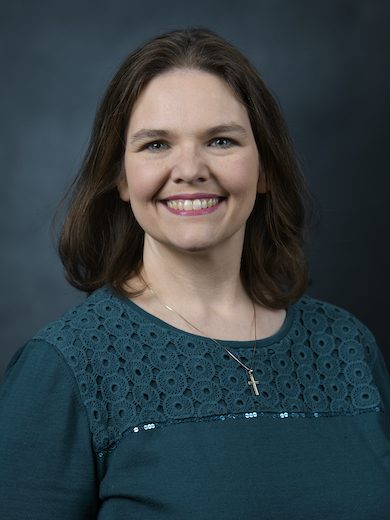On-Site Professional Development

CMSE staff are available to lead professional development sessions at school or district. A list of available sessions is provided below. Each session can be adapted to meet the needs of the school/district. We can also schedule a consultation to discuss your specific professional learning needs and design a professional development plan tailored to you.
Submit the form below and a member of our Professional Learning Division staff with contact you to further discuss your specific needs and prepare a quote for professional development services.
If you have any questions please contact Dr. Julie James via email (jjames1@olemiss.edu) or phone (662-915-6621)
Professional Development Sessions
Each session below can be adapted to meet the needs of broader, narrower, or grade level specific audiences.
This two-day session engages teachers in understanding the development number sense through a conceptual understanding of counting strategies, place value, composition and decomposition of number. Teachers will explore the progression of content as outlined in the standards as well as how to build students’ computational understanding beginning with concrete tools through connections to abstract algorithms. Classroom management strategies, such as math learning centers, literacy integration, and fluency practices will be incorporated into this session.
2 Days (12 hours of instruction)
During this two-day session, participants will discuss common characteristics of struggling learners and explore instructional techniques to help these students succeed. Participants will investigate specific tools, manipulatives, and strategies that help struggling learners attain success.
2 Days (12 hours of instruction)
Participants will explore how to incorporate a low-preparation, but high-yield 15-minute classroom conversation into their daily routine. Through this session, participants will observe number talks with real students, engage in number talks as a participant, understand how to prepare and design their own number talks, and investigate computation strategies that mirror the progression of students’ understanding.
1 Day (6 hours of instruction)
Procedural fluency is defined as the “knowledge of procedures, knowledge of when and how to use them appropriately, and skill in performing them flexibly, accurately, and efficiently” (NRC, 2001). The Mississippi College- and Career-Readiness Standards for Mathematics outline several fluency expectations for students in Grades K-6 that support students’ conceptual understanding of mathematics throughout the high school grades. In this workshop, teachers will explore the fluency expectations of elementary grades and how these expectations build on one another and progress through the upper grades. Participants will break out into grade-band groups to delve deeper into tasks and teaching practices that support the specific fluency expectations in each grade.
1 Day (6 hours of instruction)
Science and mathematics are valuable tools used to make sense of our world yet students often see these concepts as separate skills, unrelated to one another. This session will address these challenges and investigate practical ways to integrate STEM across the curriculum. During this session, participants will examine Mississippi College- and Career-Readiness Standards for both mathematics and science, collaborate with peers, and practice STEM integration through hands-on learning.
1 Day (6 hours of instruction)
This two-day session engages teachers in exploring strategies and tools to introduce representations of fractions, including manipulatives, number lines, and diagrams. Strategies for building conceptual understanding of fraction equivalence will be explored as well as strategies for teaching operation with fractions (addition, subtraction, multiplication, and division). These strategies will build upon students’ prior experiences with operation with whole numbers.
2 Days (12 hours of instruction)
Participants will investigate the specific trajectory of how area models are developed over time, including application to whole number, fraction, and polynomial multiplication. Teachers will explore hands-on problem solving with area models in meaningful contexts using a variety of tools and manipulatives.
1 Day (6 hours of instruction)
In this workshop, participants will explore the meaning of division as described in the Mississippi College- and Career-Readiness Standards and investigate ways to help students connect division to the concepts of place value, multiplication, and subtraction.
1 Day (6 hours of instruction)
This two-day session engages teachers in exploring strategies and tools to introduce students to algebraic reasoning including conceptual development of integer operations, solving equations, and connecting algebra to prior mathematics learning. Teachers will also explore common misconceptions that student have related to graphing, slope, and functions.
2 Days (12 hours of instruction)
Mathematical modeling is the processing of applying mathematics to explore and solve real-world problems. During this session, participants will discuss the modeling process and explore problems that engage middle grade students in mathematical modeling.
1 Day (6 hours of instruction)
Participants will engage in classroom-ready tasks that illuminate the conceptual meaning of geometric transformations. Teachers will explore physical and digital tools, unpack the content standards related to geometric transformations, and discover connections to other mathematical topics.
1 Day (6 hours of instruction)
The Standards for Mathematical Practice describe the ways that students should engage with mathematics content during the learning process. In this session, participants will explore the habits of mind that students should develop while learning mathematics and investigate hands-on activities designed to engage students in these mathematical practices. Each full day of this session focuses on two, related mathematical practices: 1) Problem Solving and Perseverance, 2) Tools & Modeling, 3) Reasoning & Justifying, and 4) Structure & Repeated Reasoning.
4 Days (24 hours of instruction)
To request on-site professional development, please submit the form below. A member of our staff will be in touch with you shortly!